Fasting has been around for centuries and is practiced in many religious traditions.
One type, intermittent fasting, has become a popular dietary practice that has gained momentum in recent years for its weight loss and general health benefits.
Intermittent fasting is a broad term that encompasses a variety of methods, all of which involve alternating periods of eating and fasting.
This can look like alternate-day fasting, fasting for 2 out of 7 days per week, or limiting the eating window to the earlier part of the day or the later part of the day (time-restrictive eating), among others. The important thing is that it suits your lifestyle and schedule.
Research has shown that intermittent fasting can be an effective weight loss strategy and may offer several health benefits, including improved insulin sensitivity, reduced inflammation, and even increased longevity.
However, despite its proven advantages, many people struggle with sticking to an intermittent fasting regimen.
This may be because they have a hard time managing the hunger and cravings due to difficulties with maintaining an appropriate caloric intake during feeding windows. Additionally, during the fasting window, low energy is also common.
In this article, we will explore the basics of intermittent fasting, discuss common challenges that people face, and provide practical tips on how to enhance your intermittent fasting experience and transform your health and well-being.
Research Findings on Intermittent Fasting
As intermittent fasting has gained in popularity so have the research findings.
Beyond weight loss, research suggests that intermittent fasting could positively boost your immune system.
Different things could be happening to cause this effect, like stronger daily biological clocks, fewer inflammation-causing cells, and more types of good gut bacteria.
Additionally, it looks like protection against oxidative stress and hormone secretion may help explain why intermittent fasting is beneficial for obese individuals. However, more research is needed to learn more about how fasting affects the immune system in these conditions.
There are many approaches to intermittent fasting, so you may be wondering which is the best approach.
Studies have shown that all 3 intermittent fasting modalities (alternative day fasting, fasting for 2 out of 7 days per week, and time-restricted eating) can be beneficial for weight loss.
However, one of the drawbacks of intermittent fasting is that it can stunt muscle growth, or even cause muscle loss.
Losing muscle mass can have a negative effect on strength and physical function, heart health, and metabolic health, such as how many calories you burn each day.
Therefore, strategies that prevent loss of muscle while intermittent fasting should be taken into consideration.
Practical and Simple Solutions
To optimize your intermittent fasting regimen and overcome common challenges such as muscle loss, consider trying these practical and simple solutions:
Ease into it: Gradually increase the length of your fasting periods to give your body time to adapt to this new eating pattern. This can help reduce the discomfort associated with the initial adjustment period.
Listen your body: Adjust your fasting schedule to suit your individual needs and lifestyle. If a particular fasting window or method isn't working for you, experiment with different approaches until you find one that feels sustainable.
Combine intermittent fasting with exercise: Engaging in regular physical activity can enhance the benefits of intermittent fasting, as it may improve insulin sensitivity and increase fat loss. Find a workout routine that fits your schedule and preferences to maximize adherence.
Stay hydrated: Drinking plenty of water during fasting periods can help you feel fuller and reduce hunger pangs. You can also consume calorie-free beverages like black coffee, green tea, or herbal tea, which can aid in appetite suppression.
Opt for nutrient-dense foods: When breaking your fast, focus on consuming nutrient-dense, whole foods that provide a balance of proteins, healthy fats, and complex carbohydrates. This will ensure you meet your nutritional needs and help control hunger during fasting periods.
Incorporate essential amino acids (EAAs): EAAs are the key to avoiding muscle loss while fasting. Because it may be difficult to get enough EAAs in the time available for meals when intermittent fasting, supplemental EAAs may help support muscle quantity and quality.
Essential Amino Acids and Intermittent Fasting
EAAs are the building blocks of proteins that our bodies cannot produce on their own and must be obtained through our diet. These amino acids play a crucial role in various physiological processes, including muscle growth and repair, immune function, and hormone production.
Incorporating EAAs into your intermittent fasting regimen can significantly enhance your fasting experience in a number of ways.
During periods of fasting, the body's energy sources shift from carbohydrates to stored fat and, in some cases, muscle protein.
Prolonged fasting can lead to a decrease in muscle mass due to the breakdown of muscle protein for energy.
Consuming EAAs while fasting can help prevent muscle loss and promote muscle protein synthesis.
In addition to supporting muscle health, EAAs may also aid in appetite regulation. Research has shown that consuming a diet high in protein and EAAs can increase satiety and reduce subsequent food intake, which can be particularly beneficial during the feeding window of intermittent fasting.
And finally, because EAAs support energy production, consuming them while fasting can help to combat some of the fatigue you may experience.
Will Essential Amino Acids Break Your Fast?
A common concern many fasters have with taking supplements is whether a particular supplement will "break" a fast or not.
The answer to that question all depends on what your goals are whilst fasting.
If you are fasting for body composition, gut health, energy, mental clarity, or immune health, taking a supplement like EAAs will not negate any of the benefits of your fast.
Kion Aminos for Intermittent Fasting
Kion Aminos is clean, research-backed, and contains all 9 EAAs in their ideal ratios.
Drinking Kion Aminos makes intermittent fasting easier by keeping you satiated throughout your fasting window, supporting the maintenance and growth of muscle, and naturally boosting energy while fasted.
Using Kion Aminos as a part of your intermittent fasting regimen can also support workout performance and recovery.
Consuming Kion Aminos before or after your workout can help you maintain your exercise routine while fasting, maximizing the benefits of both intermittent fasting and physical activity.
Conclusion
Intermittent fasting offers numerous health benefits, from weight loss and improved metabolic health to enhanced cognitive function and potential lifespan extension.
By incorporating practical solutions such as staying hydrated, consuming nutrient-dense foods, ensuring adequate intake of EAAs, and engaging in regular exercise, you can optimize your fasting experience.
Essential amino acids like Kion Aminos can further enhance your intermittent fasting journey by supporting appetite regulation, energy, muscle maintenance and growth, as well as exercise performance.
Make fasting easier with Kion Aminos
Buy Now
Scientific Research
- Aragon AA, Schoenfeld BJ. Does timing matter? A narrative review of intermittent fasting variants and their effects on bodyweight and body composition. Nutrients. 2022;14(23):5022.
- Ashtary-Larky D, Bagheri R, Tinsley GM, Asbaghi O, Paoli A, Moro T. Effects of intermittent fasting combined with resistance training on body composition: a systematic review and meta-analysis. Physiol Behav. 2021;237:113453.
Harvard Health Publishing. Time to try intermittent fasting? July 1, 2020. https://www.health.harvard.edu/heart-health/time-to-try-intermittent-fasting#:~:text=Intermittent%20fasting%20is%20likely%20a,to%20lower%20heart%20disease%20risk. Accessed April 10, 2023. - Cleveland Clinic. 5 tips for healthy fasting. September 20, 2022. https://health.clevelandclinic.org/5-tips-for-fasting-the-healthy-way/. Accessed April 6, 2023.
- Dote-Montero M, Sanchez-Delgado G, Ravussin E. Effects of intermittent fasting on cardiometabolic health: an energy metabolism perspective. Nutrients. 2022;14(3):489.
- Elortegui Pascual P, Rolands MR, Eldridge AL, et al. A meta-analysis comparing the effectiveness of alternate day fasting, the 5:2 diet, and time-restricted eating for weight loss. Obesity (Silver Spring). 2023;31 Suppl 1:9-21.
- He Z, Xu H, Li C, Yang H, Mao Y. Intermittent fasting and immunomodulatory effects: A systematic review. Front Nutr. 2023;10:1048230.
- Kalam F, Kroeger CM, Trepanowski JF, et al. Beverage intake during alternate-day fasting: Relationship to energy intake and body weight. Nutr Health. 2019;25(3):167-171.
- Keenan S, Cooke MB, Belski R. The effects of intermittent fasting combined with resistance training on lean body mass: a systematic review of human studies. Nutrients. 2020;12(8):2349.
- Moro T, Tinsley G, Pacelli FQ, Marcolin G, Bianco A, Paoli A. Twelve Months of Time-restricted Eating and Resistance Training Improves Inflammatory Markers and Cardiometabolic Risk Factors. Med Sci Sports Exerc. 2021;53(12):2577-2585.
- Pinto FCS, Silva AAM, Souza SL. Repercussions of intermittent fasting on the intestinal microbiota community and body composition: a systematic review. Nutr Rev. 2022;80(3):613-628.
- PubChem. Histidine. https://pubchem.ncbi.nlm.nih.gov/compound/Histidine. Accessed March 23, 2023.
- PubChem. Isoleucine. https://pubchem.ncbi.nlm.nih.gov/compound/l-Isoleucine. Accessed March 23, 2023.
- PubChem. Leucine. https://pubchem.ncbi.nlm.nih.gov/compound/Leucine. Accessed March 23, 2023.
- PubChem. Lysine. https://pubchem.ncbi.nlm.nih.gov/compound/L-lysine. Accessed March 23, 2023.
- PubChem. Methionine. https://pubchem.ncbi.nlm.nih.gov/compound/L-methionine. Accessed March 23, 2023.
- PubChem. Phenylalanine. https://pubchem.ncbi.nlm.nih.gov/compound/L-phenylalanine. Accessed March 23, 2023.
- PubChem. Threonine. https://pubchem.ncbi.nlm.nih.gov/compound/L-threonine. Accessed March 23, 2023.
- PubChem. Tryptophan. https://pubchem.ncbi.nlm.nih.gov/compound/L-tryptophan. Accessed March 23, 2023.
- PubChem. Valine. https://pubchem.ncbi.nlm.nih.gov/compound/Valine. Accessed March 23, 2023.
- Tang D, Tang Q, Huang W, Zhang Y, Tian Y, Fu X. Fasting: From Physiology to Pathology. Adv Sci (Weinh). 2023;10(9):e2204487.
- Williamson E, Moore DR. A muscle-centric perspective on intermittent fasting: a suboptimal dietary strategy for supporting muscle protein remodeling and muscle mass?. Front Nutr. 2021;8:640621.
- Wolfe RR. Branched-chain amino acids and muscle protein synthesis in humans: myth or reality?. J Int Soc Sports Nutr. 2017;14:30.
* These statements have not been evaluated by the Food and Drug Administration. This product is not intended to diagnose, treat, cure, or prevent any disease.
© 2022 Kion. All rights reserved.



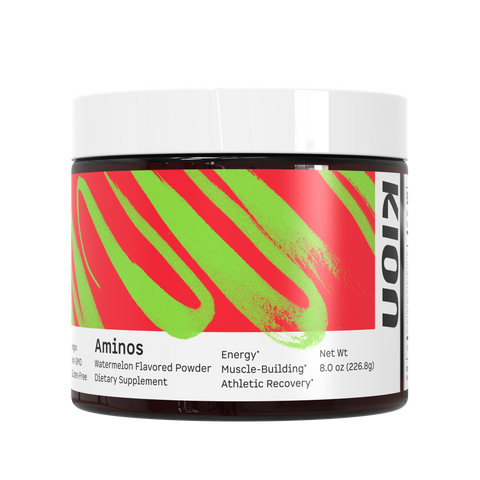
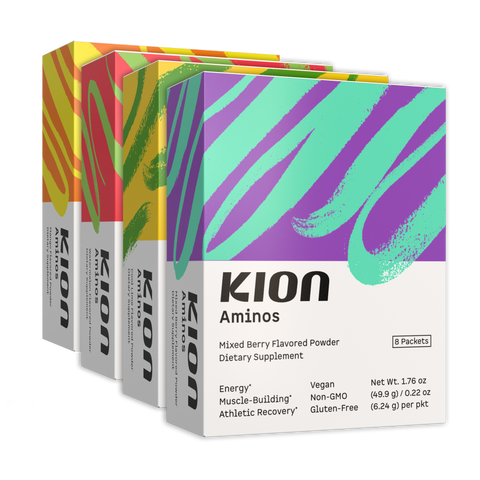
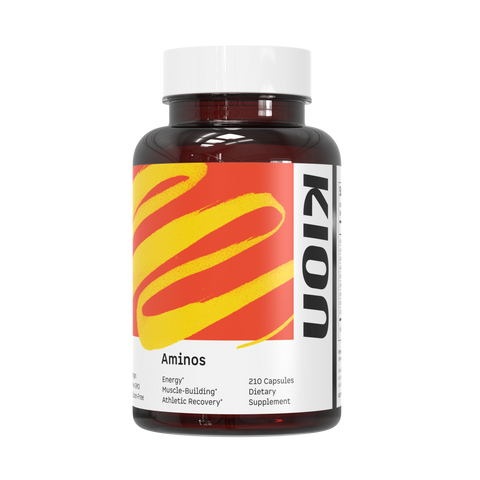
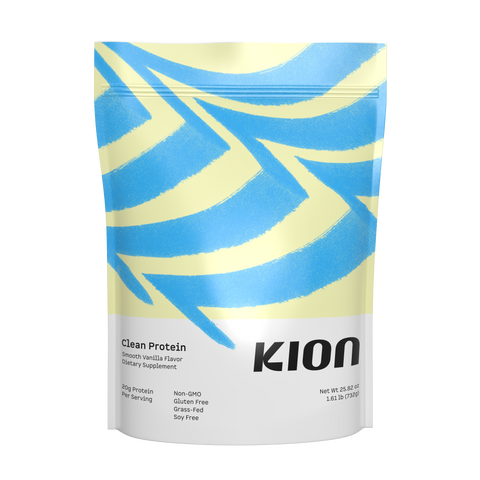
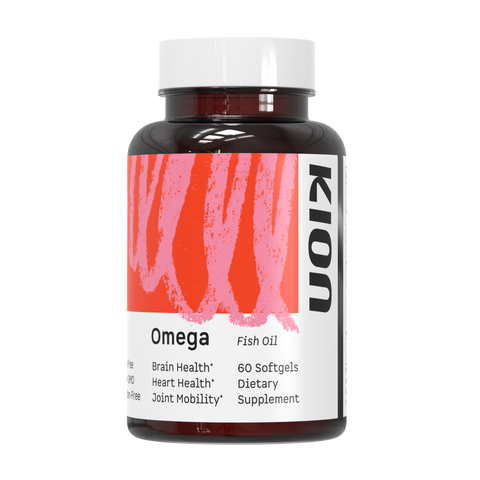
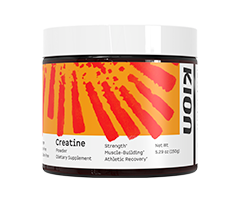
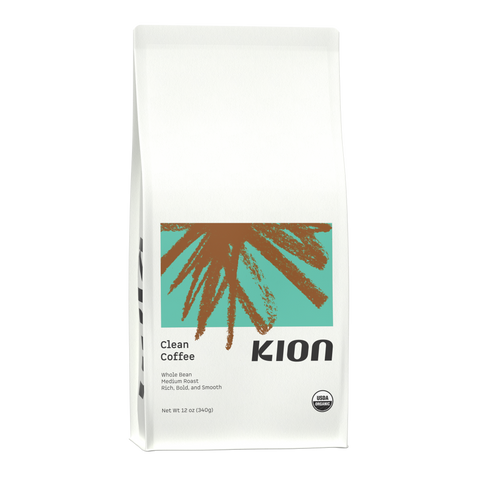
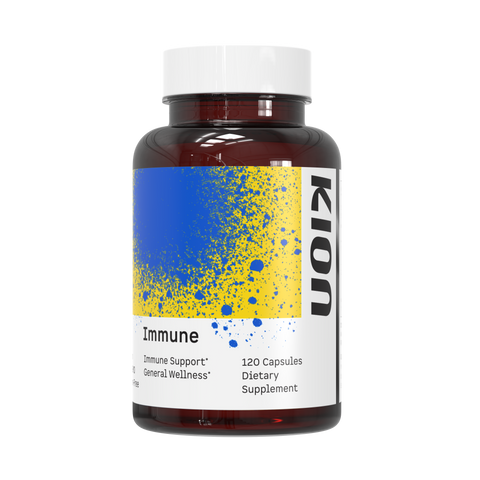
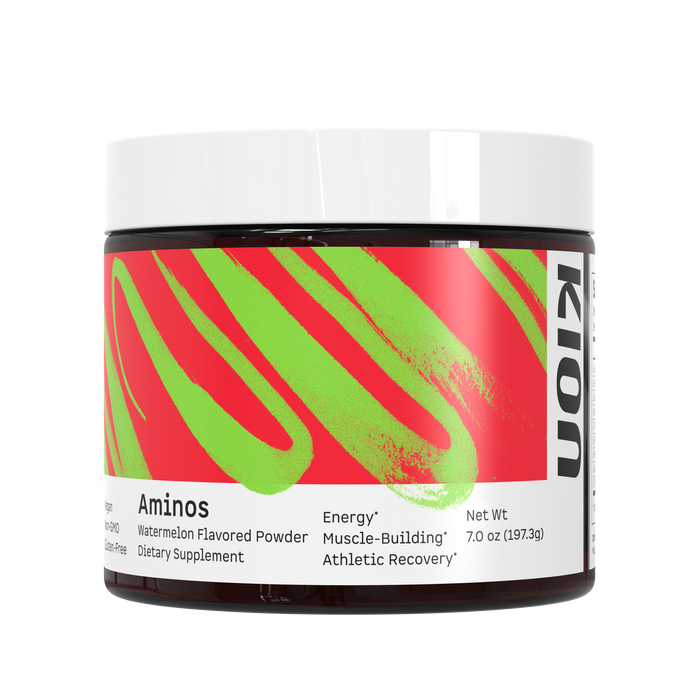




Comments
The article says that EAA will not affect fasting, depending on the sought outcomes. How does it affect the bodies going into autophagy?
———
Kion replied:
Any stimulus that activates mTor pathways is thought to inhibit autophagy to varying degrees. This can include but is not limited, to rigorous exercise such as strength training, consuming protein, and yes, supplementing with EAA.
Joey on